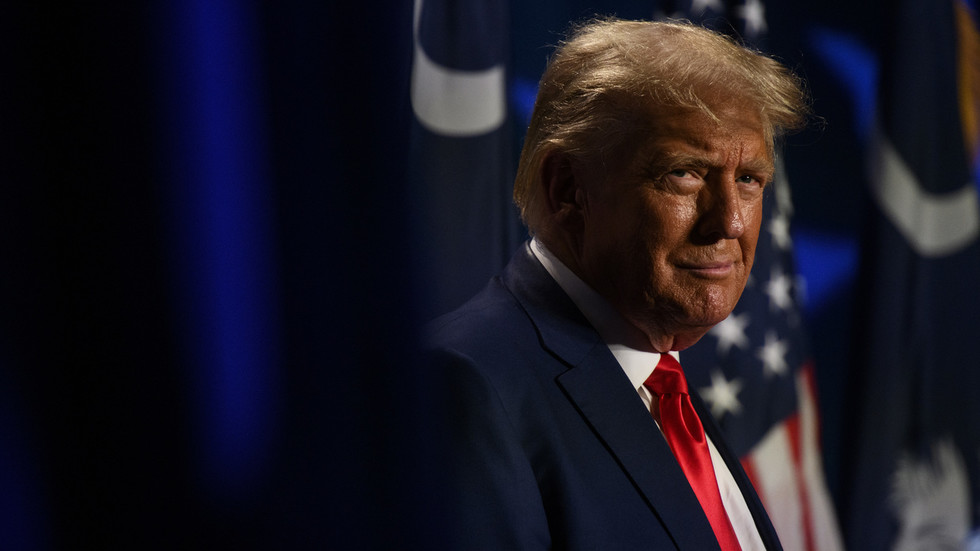
US President Donald Trump
AMMAN: Donald Trump's plan to move Palestinians out of Gaza poses a major threat to Jordan, with analysts saying it would upend the balance the kingdom must strike between ensuring its US aid lifeline and safeguarding its own security.
Trump announced this week, to audible gasps from those in attendance, a proposal for the United States to take over Gaza and to move its residents out.
He had previously floated Jordan and Egypt- both US allies, and neighbours of Israel and the Palestinian territories- as possible destinations.
But both countries have flatly rejected the proposal, reiterating their support for the eventual creation of a Palestinian state.
"This project not only seeks to eliminate the legitimate national rights of the Palestinian people on their land, but also affects security, stability, identity and sovereignty in Jordan," said Oraib Rantawi, who heads the Amman-based
Al Quds center for political studies
.
"In Jordan, we would be looking at an existential threat, not just a security threat," he said, warning that such a move would export the Israeli-Palestinian conflict to Jordan.
"Jordan could cease to exist if this displacement plan is executed."
King Abdullah II on Wednesday rejected "any attempts" to take control of the Palestinian territories and displace their people, and held talks with Palestinian President Mahmud Abbas on the matter.
On February 11, he is due to meet Trump in Washington, after Israeli prime minister Benjamin Netanyahu this week became the first foreign leader to meet the president at the White House since his inauguration.
'Recipe for ruin'
Despite widespread backlash, Trump has insisted that "everybody loves" the plan, which he said would involve the United States taking over the Gaza Strip, though he offered few details on how more than two million Palestinians would be removed.
"The US will take over the Gaza Strip and we will do a job with it, too. We'll own it," he said, sparking a global outcry.
Rantawi called the plan "a recipe for ruin, not a recipe for stability and peace".
Former Jordanian information minister Samih al-Maaytah said it would be "political suicide" for Jordan and Egypt, with both countries "accused of colluding to crush the Palestinian cause".
"For Jordan, it would change our demography and the political equation, while destroying our national identity," he added.
Half of Jordan's population of 11 million is of Palestinian origin, and since the establishment of Israel in 1948, many Palestinians have sought refuge there.
According to UN figures, 2.2 million Palestinians are registered as refugees in Jordan.
Up until Israel's 1967 occupation, the West Bank and East Jerusalem were under Jordan's administration.
The Jordanian military and Palestinian factions fought Israel together in 1968.
But in 1970, clashes erupted between the army and Palestinian groups in what became known as "Black September".
Sparked by a decision by armed factions to start operating in Amman and other major cities, and to set up illegal checkpoints, the violence ultimately led to the groups' expulsion from the country.
Part of the uproar over Trump's proposal emanated from the departure it would entail from long-standing international efforts towards self-determination for Palestinians and an eventual two-state solution.
"Who gave Trump the moral, legal and political authority to intervene in Gaza, take it over and invest in it? He talks about Gaza like a real estate developer, not like a head of state," Rantawi said.
'No choice'
For Jordan in particular, the outrage also stems from a perceived lack of recognition for its sovereignty.
Jordan is also well aware of the economic pressure the United States could exercise, given how small its economy is and how greatly it relies on international aid, chiefly from Washington.
Every year, Jordan receives from the United States around $750 million in economic assistance and another $350 million in military aid.
Still, King Abdullah is unlikely to give Trump any room for manoeuvre when they meet later this month.
"The king has no choice but to reject this proposal outright," Rantawi said, adding it was "non-negotiable".
"Trump wants us to sell Jordan for $1.5 billion in aid," he added.
Mustafa al-Amawi, a Jordanian MP, said that US aid "was not a gift".
"But if it comes down to making a trade-off, we will not accept the aid," he said.
Maaytah agreed.
"It is true that Jordan would be affected if aid were cut off, but it isn't worth bartering for," he said.
Fears of coming under pressure over Trump's proposal sparked legislators to prepare a bill on national sovereignty and rejecting any forced displacement of Palestinians to Jordan "as an alternative homeland".
"Parliament stands with the king, and categorically rejects the US president's statements on the forced displacement of Gazans from their homes to Jordan, Egypt or any other country," Amawi said.

 3 hours ago
3
3 hours ago
3









